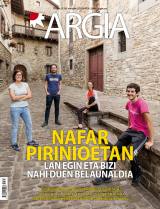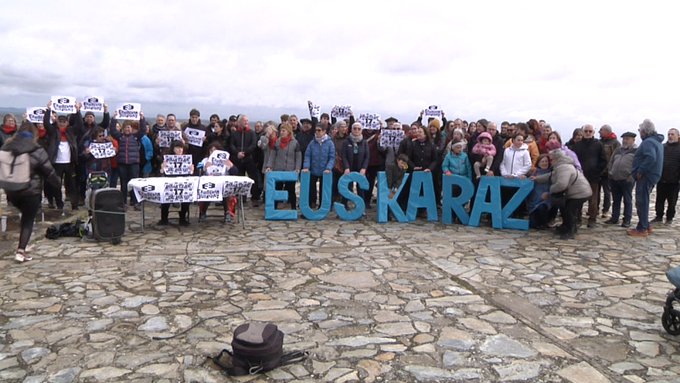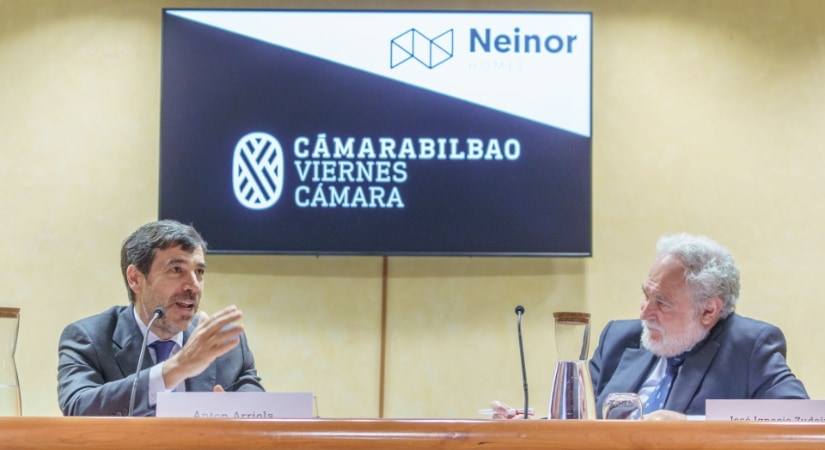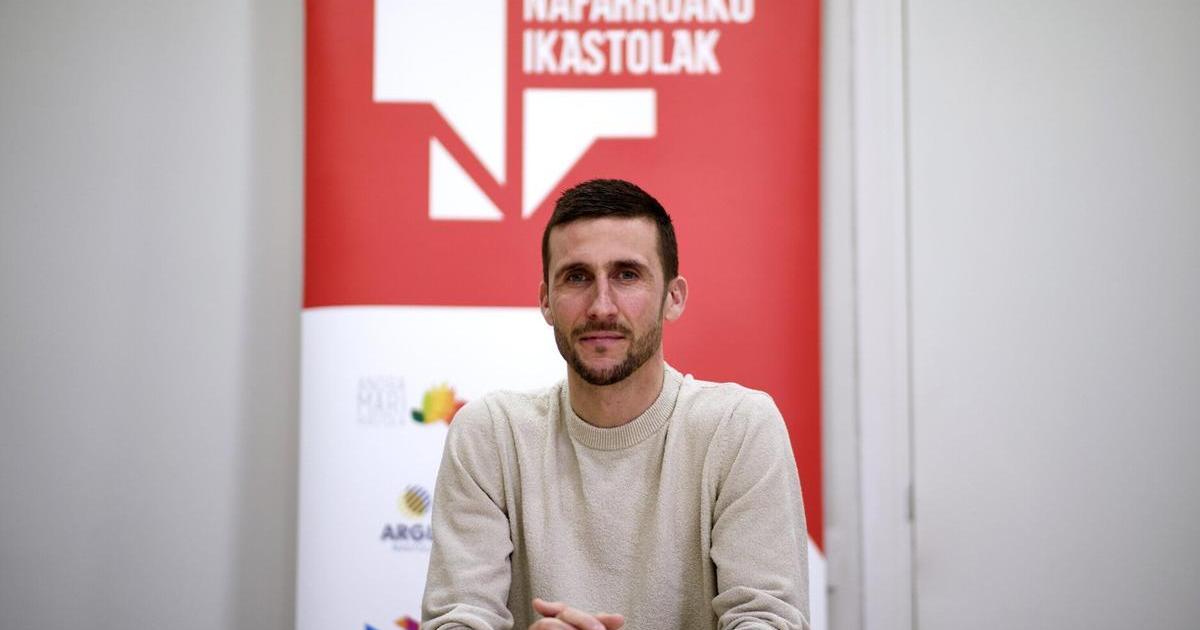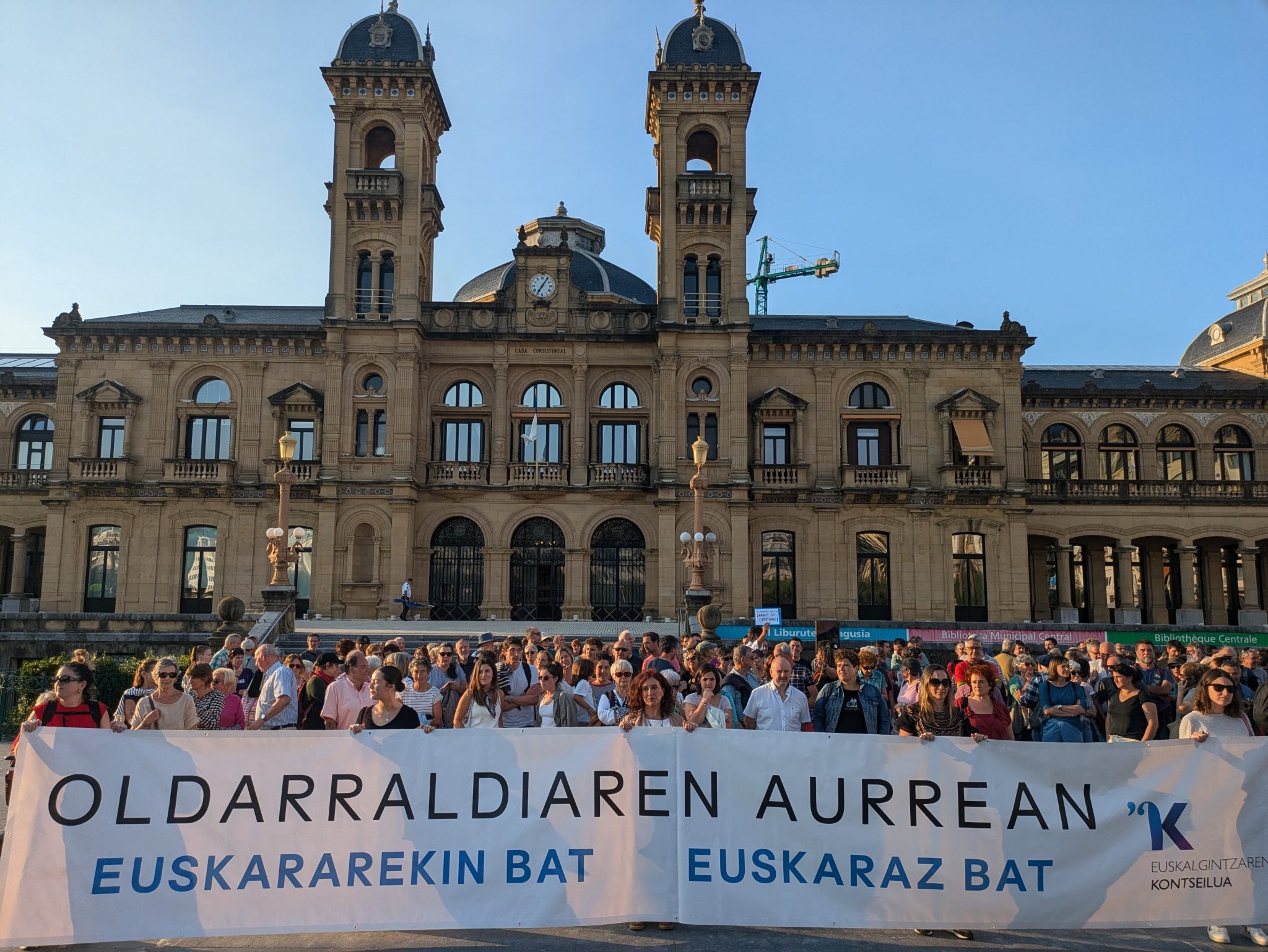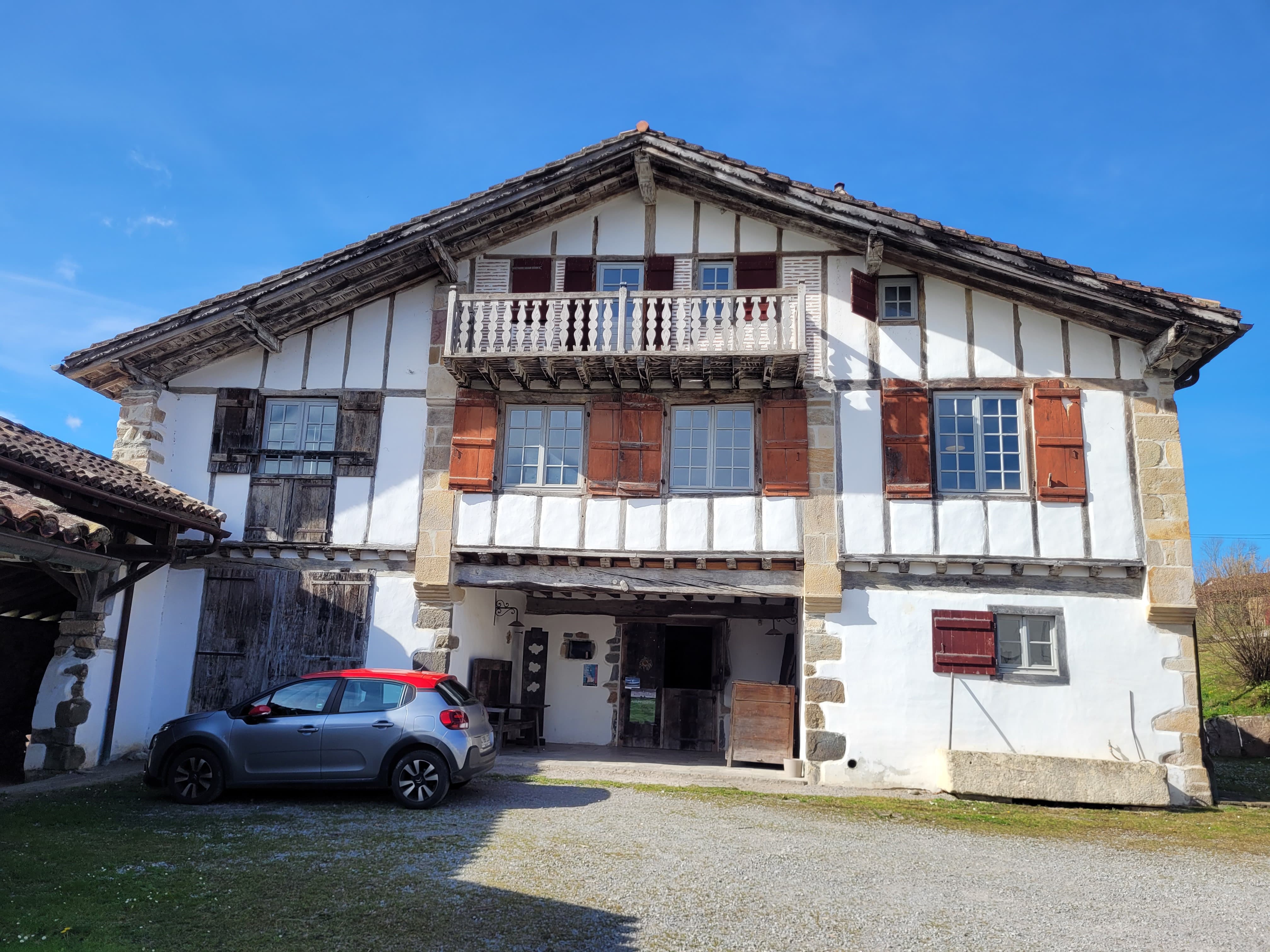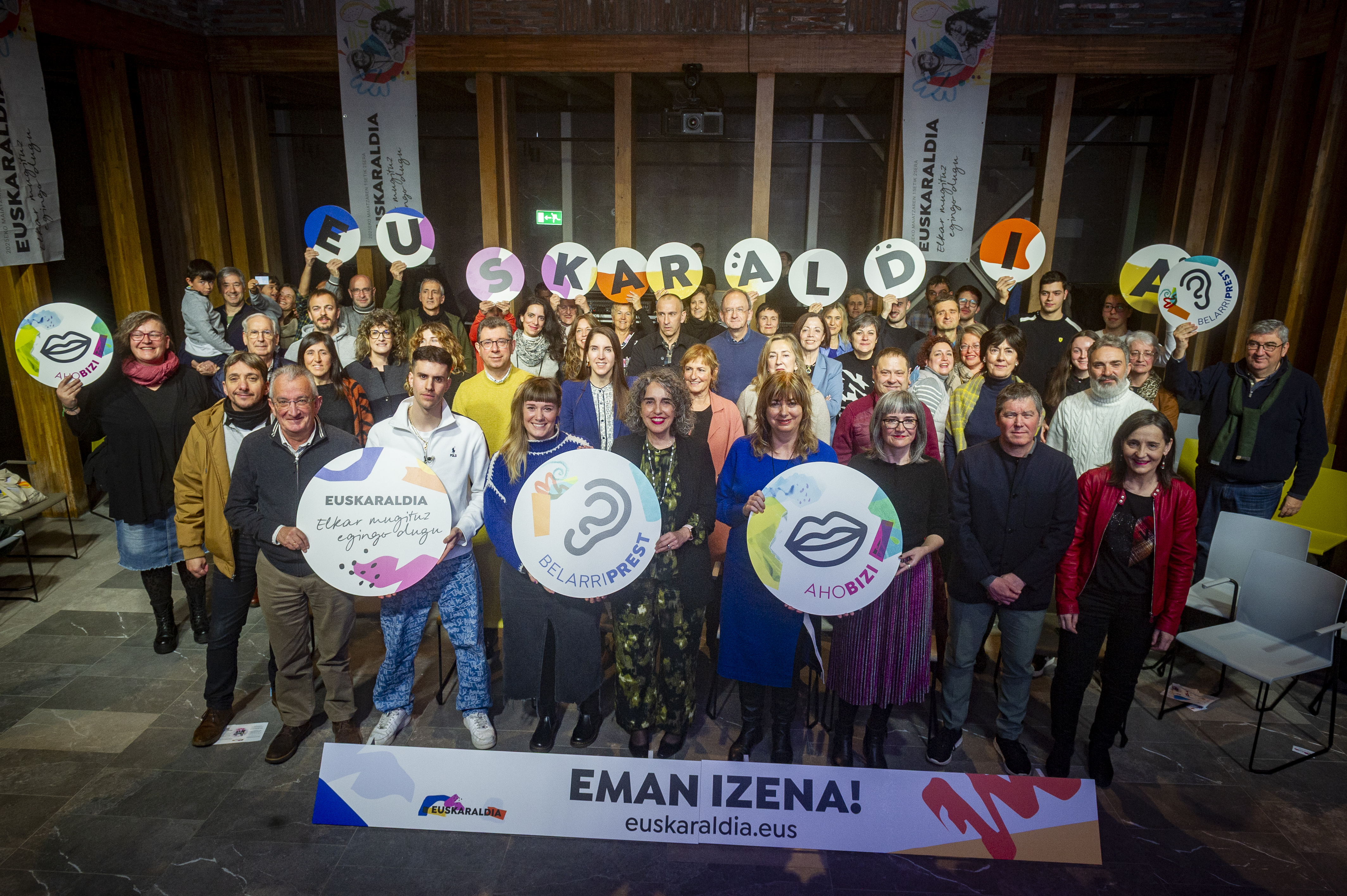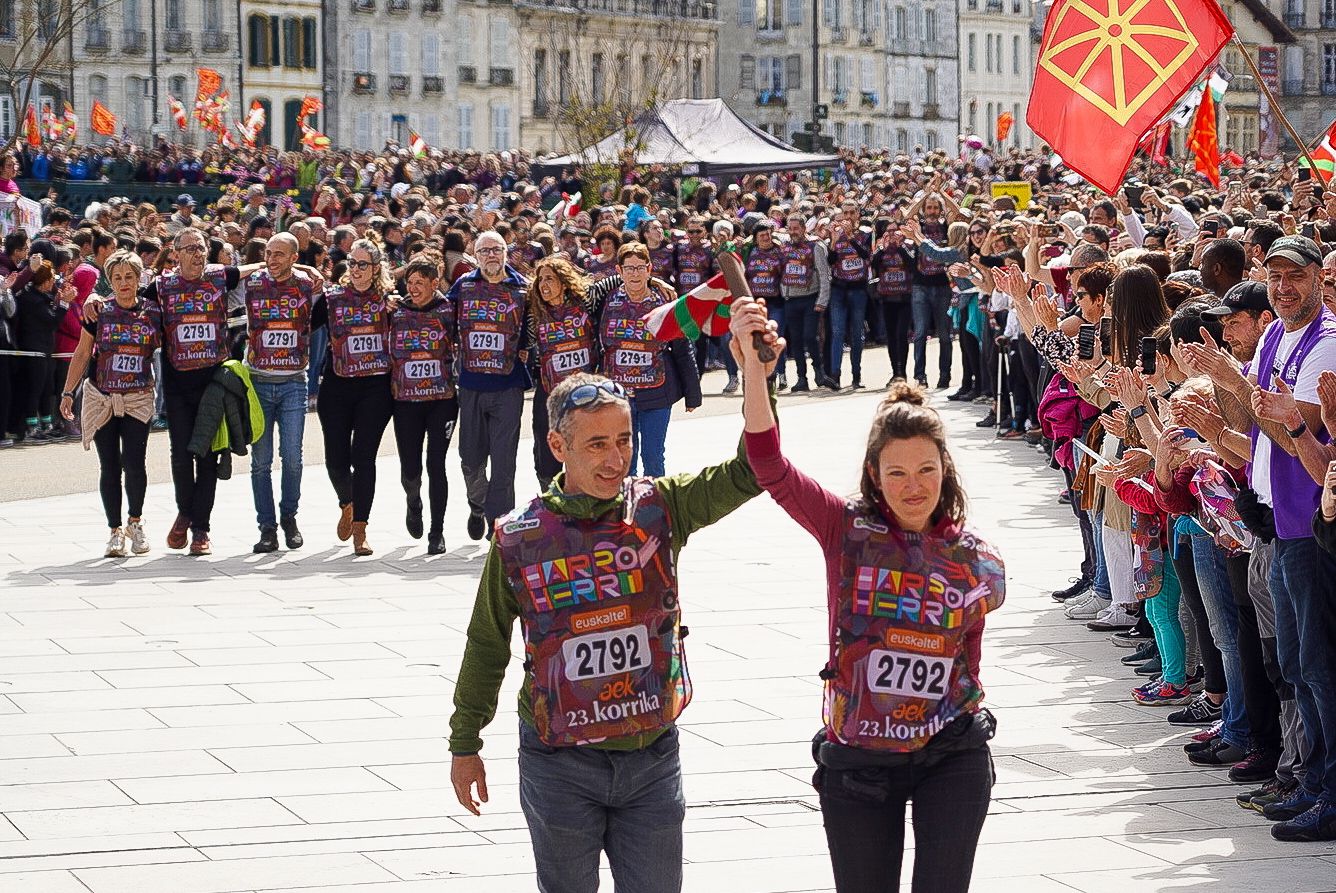"It was a surprise that in the Spanish texts the Euskaldunes have taken better notes of the house than the Castilian speakers"
- The light bulb went on when I was a caregiver for two children in the United States. The defendant had to speak with them in English, Spanish and sign language, at the request of his parents. Seeing the evolution of the children, she decided to direct her studies towards her. He has completed the Master's Degree in Multilingualism and Education at the UPV/EHU and the A study of multilingual writing. We have asked him to tell us about this study carried out in a school in Bizkaia.
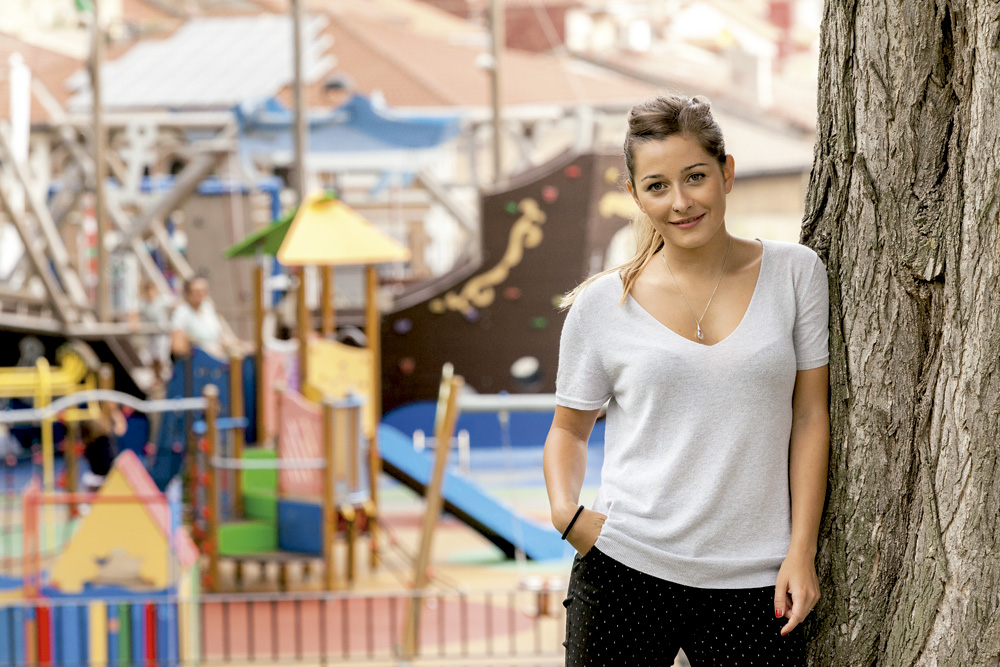
Maialen Urbieta studied in Teaching at the UPV/EHU, has undergone a postgraduate course in Early Childhood Education for the teaching of English and is undergoing a postgraduate course in Primary Education for the teaching of Euskera. We've had news from Getaria through a prize. He has been awarded by the Compostela University Group, with the research work of the master reported in video for three minutes.
We will ask you about the research work, but before I tell you the experience of the EE.UU.
I went to a family to take care of the children. I had to take special care of a two-month-old boy. Her parents wanted it to be done all the time in Spanish and when her 4-year-old sister came from school in English. In addition, I had to use sign language with the little one.
The gestural language we know for adults?
They call it American Baby Sign Language. There were applications for mobile phones and I was looking at them. “milk” thus [makes a gesture], so “mother” as well, “father” as well. The child asked me to change diaper in less than a year. The way we communicate was very good. Spanish and English came later, but he learned the gestures quickly. At 8 months, I asked for milk, “I want more”, “I want to go to sleep”, “I change my sleeves”... I knew how to make gestures. Speed with gestures reduces frustration. Their obligations have been met in advance. The child almost never cried, asked, and I understood it very well.
The older sister spoke in English with her parents and from the age of 6 months she was brought to school in Spanish. I saw the ability of the two children to engage in different languages.
And the light bulb turned on you.
I thought, “Oyster, this is beautiful, I want to learn more about this!” So, I was struck by the Master's in Plurilingualism and Education.
What did the research work of the master's degree do?
The work has been done by Mikel Goikoetxea and I, with Durk Gorter [researcher at the UPV/EHU expert in multilingualism education] in the lead. We take advantage of the collection of materials by Gorter. We have analyzed the texts in Basque and Spanish made by 114 students from a school in Bizkaia that teaches in model D. They're 10, 11 and 12 years old. Some of these children are Basques from home and breathe Spanish out of home, as in the village Castilian is the main language. Others bring home Spanish and have had knowledge of the central Basque country. There are also people who speak other languages at home. In his writings we have analyzed and scored the organization of the text, its content, spelling, grammar, the use of language (if using simple verbs or composites...).
What was the objective of the study, to demonstrate a hypothesis?
There are many theories that say that early plurilingualism is beneficial. Our goal was to demonstrate that. The result has been as follows: early multilingualism is positive. That is, the children who have spoken Basque at home since birth, and also those who speak Spanish on the street, both in Basque and in Spanish, have made an enormous difference to those who have written at home and have known the second language, the Basque language.
“There are many theories that say that early plurilingualism is beneficial. Our goal was to prove it.”
Therefore, you had bilingual goals of early research, in this case, which since their birth have breathed Euskera at home and Castilian in the street.
We wanted to know if those early bilingual children have any benefit. We expected the work in Euskera to be made better, but it was a great surprise that the Spanish texts got better notes than those that come from home in Spanish.
In the Spanish writings?
Yeah, that's amazing. Being bilingual early is positive, but to what extent? According to the study, until these results are obtained.
What do you mean by this phrase? “Multilingual people have cognitive benefits, not just in the results of tests.”
One thing is the note that the students have obtained in the research in each work and another is that these children develop strategies to translate the things learned in one language to another.
In the video recording prepared for the competition you say that in school there is a teacher of each language and the one-hour class formula, perhaps not the most appropriate.
The study analyzed, on the one hand, the difference between those who come from Euskera and those who do not, and on the other hand, the two texts of the same child were compared. We have seen how if he wrote in the Basque paragraphs he wrote in Spanish in the paragraphs and if he put the title to the Basque also in Spanish... Knowledge can go from one language to another. Therefore, it makes no sense for the Basque teacher to teach writing, for the Spanish teacher to do the same, and for the English teacher to do the same.
Learn about Canada's experiences.
They have a language lesson there, maybe three hours and they work languages. Based on this, the subject of Euskera, Spanish or English would not be available. I see a sense in the Canadian mold, although in research I have not proven its usefulness. Here language teachers talk to each other, but there are no language lessons.
I see a danger to the Canadian system. There, each student works the language they want. Perhaps in Getaria do not have problems, thinking that the Basque is not going to suffer losses, but in Bilbao? I would have to make it very moderate, I would not rush anywhere. The Basque language is a minority language and the Spanish language is outstanding. I would not like to be opposed to Euskera by a commitment to multilingualism.
Maialen Urbieta planned to travel to Hungary in September, where the awards of the competition organized by the Compostela University Group will be presented. He will not attend the appointment, as the Basque Summer University has offered Ulibarri a job for several months. It is a pity that he cannot go for the prize, but he knows that he now has the opportunity to continue learning multilingualism in the work of the EU.
Anton Txekhov, Raymond Carver eta Alice Munroren ipuingintzari buruzko mahai-ingurua egin dute Iker Sancho, Harkaitz Cano eta Isabel Etxeberria idazle eta itzultzaileek, Ignacio Aldecoa zenaren ipuin literarioaren jaialdian, Gasteizen. Beñat Sarasolak gidatuta, autore... [+]
Euskaraldiaren hamaikakoa aurkeztu dute Nafarroan: Julio Soto bertsolaria, Edurne Pena aktorea, Julen Goldarazena musikaria (Flakofonki), Claudia Rodriguez Goxuan Saltsan taldeko abeslaria, Eneko Garcia (Albina Stardust), Yasmine Khris Maansri itzultzaile eta kazetaria,... [+]
Azken hamarkadetan euskararen biziberritzeak duen erronka handienetakoa, euskararen ezagutzaren unibertsalizazioarekin batera, erabilerarena da. Askotan, gazteen euskararen erabileran jarri ohi dugu fokua, baita euskararen erabilerak izan duen eta izan dezakeen bilakaeraren... [+]
Prentsaurrekoan, maiatzaren 17an ospatuko duten Erriberako Euskararen Egunaren inguruko argibideak eman dituzte. Ume, gazte zein helduentzat zuzendua izango da. Ekimena, Erriberan egiten diren ekimenetan indarrak biltzeko eta euskararen normalizazioaren alde saretzeko... [+]
"Poloniar bat etortzen bada eta bost urte pasako baditu proiektu batean, joder agian ez zaio egoki irudituko seme-alabek euskaraz ikastea, ezta?", bankuko lehendakari Anton Arriolak adierazi duenez. Euskalgintzako eragileek gogor kritikatu dute eta esandakoa... [+]
Nafarroako Ikastolen Elkarteak lehendakari berria du. Oier Sanjurjok hartu dio lekukoa Elena Zabaleta Andresenari. Beste zazpi kide izanen ditu alboan Sanjurjok.
ELA sindikatuak azaldu duenez, azken Lan Eskaintza Publikoaren oinarrien arabera, Ertzaintzarako eskainitako lanpostuen %20ak eta Udaltzaingoaren %30ak ez daukate euskara-eskakizunik. Gasteizen, adibidez, udaltzain-lanpostuen erdietan, 24tan, ez dago euskara-eskakizunik.
Euskalgintzak Senpereko Larraldea etxea faltan botako du. Uda gabe, Bertsularien lagunak, bertan gelditzen den azken elkarteak, lekuz aldatuko du eta etxea hetsiko dute. Euskararen, euskal kulturaren eta arteen ohantzea izan da Larraldea, urte luzetan Andoni Iturrioz mezenasak... [+]
Badakizuenok badakizue, beste gauza asko bezala, euskararen aldeko borrokan ere politikoek, eragile batzuek eta hedabideek beraien antzezlana saldu nahi digutela, benetakoa balitz bezala.
Lehen urtean pozik jaso nuen, "Euskaraldi" hau. Zer edo zer zen, ezer ez zegoela... [+]
Euskarak, mendez mende, zapalkuntza sistematikoa jasan du, eta oraindik ere borrokan dabil egunerokoan bere leku duina aldarrikatzeko. Hizkuntza baten desagerpena ez da inoiz berez gertatzen; planifikazio politiko eta sozialak eragiten du zuzenean. Euskaldunoi ukatu egin izan... [+]
Oldarraldia ari du EAEko administrazioa euskalduntzeko erabakien aurka, berriz ere, enegarren aldiz. Oraingoan berrikuntza eta guzti, espainiar epaitegiak eta alderdi eta sindikatu antieuskaldunak elkarlanean ari baitira. Ez dira izan akats tekniko-juridikoak zuzentzeko asmoz... [+]
Horra Libération egunkariak berriki argitaratu duen idazkia:
“Bayonne” bukatu da, Libérationek “Baiona” idatziko du
Hiri baten izenaren erabilpena ohiturazkoa delarik, egunkari batean izen horren erabilpena aldatzea zaila da. Alta, irakurleen... [+]
Gasteizen egin duten ekitaldian ireki dute izen ematea, laugarren edizioa hasteko bi hilabete falta direla. Erakundeetako ordezkariak, herritarrak eta entitateetako kideak agertu dira, besteak beste. Euskaraldiaren koordinazioa Euskal Herriko erakunde publikoen eta Taupa... [+]
Korrikaren "bihotza eta burua" erakutsiko ditu dokumentalak. Proiektua gauzatzeko, herritarren babesa "ezinbestekoa" izango dela adierazi dute AEK eta Mirokutana ekoiztetxeak, eta apirilaren 25era bitartean crowdfunding kanpaina bat abiatuko dute jalgihadi.eus... [+]
Ez dira gutxi azken boladan euskara bere onenean ez dagoela eta bere transmisioa bermatuta ez dagoela ohartarazten ari diren ahotsak. Bestetik, inork ez du ukatzen hezkuntzak ezinbesteko betebeharra duenik euskara eta euskal kulturaren biziraupenerako. Erronka estrategikoa... [+]









